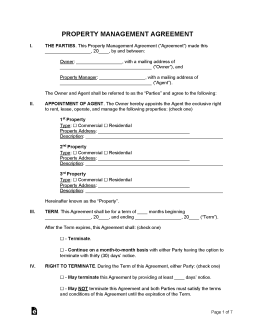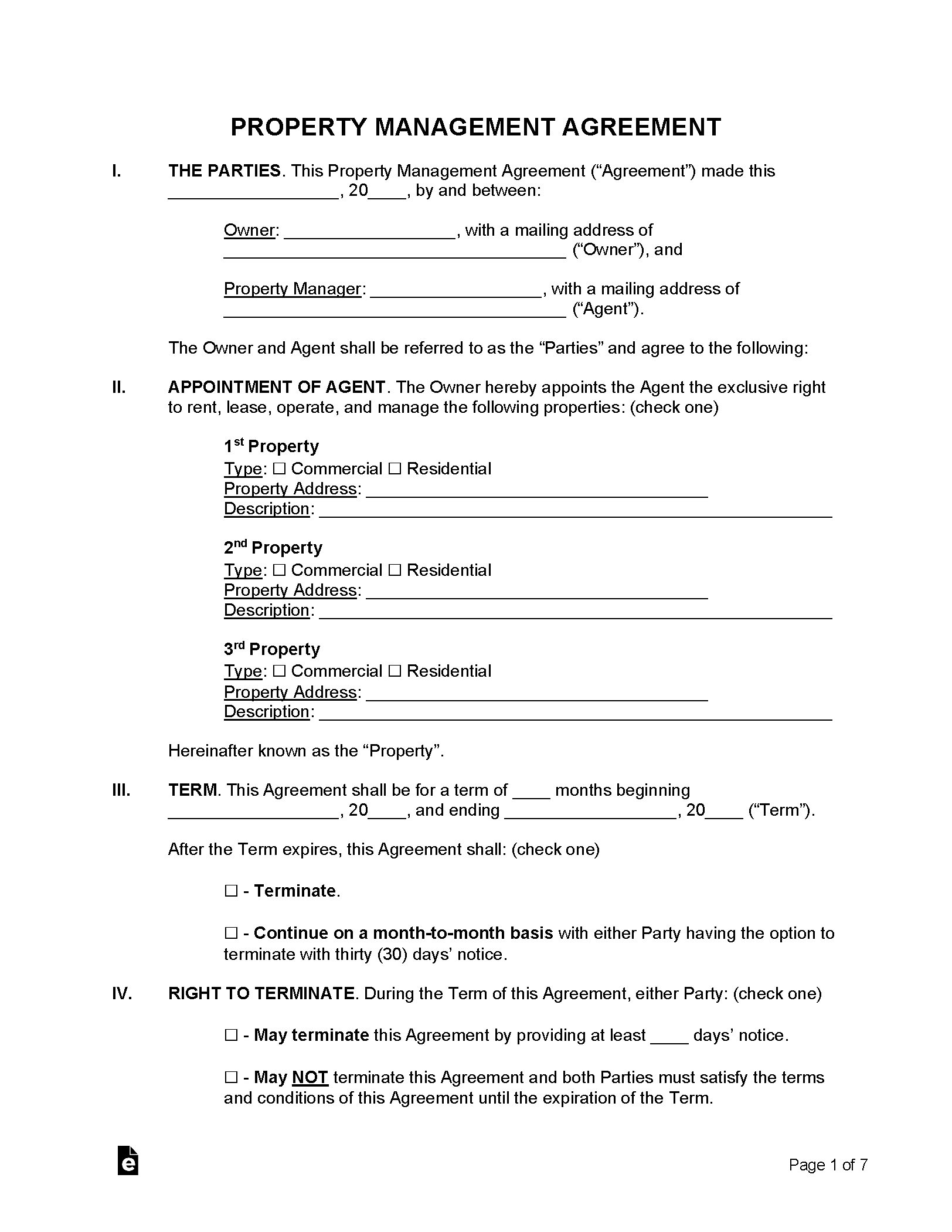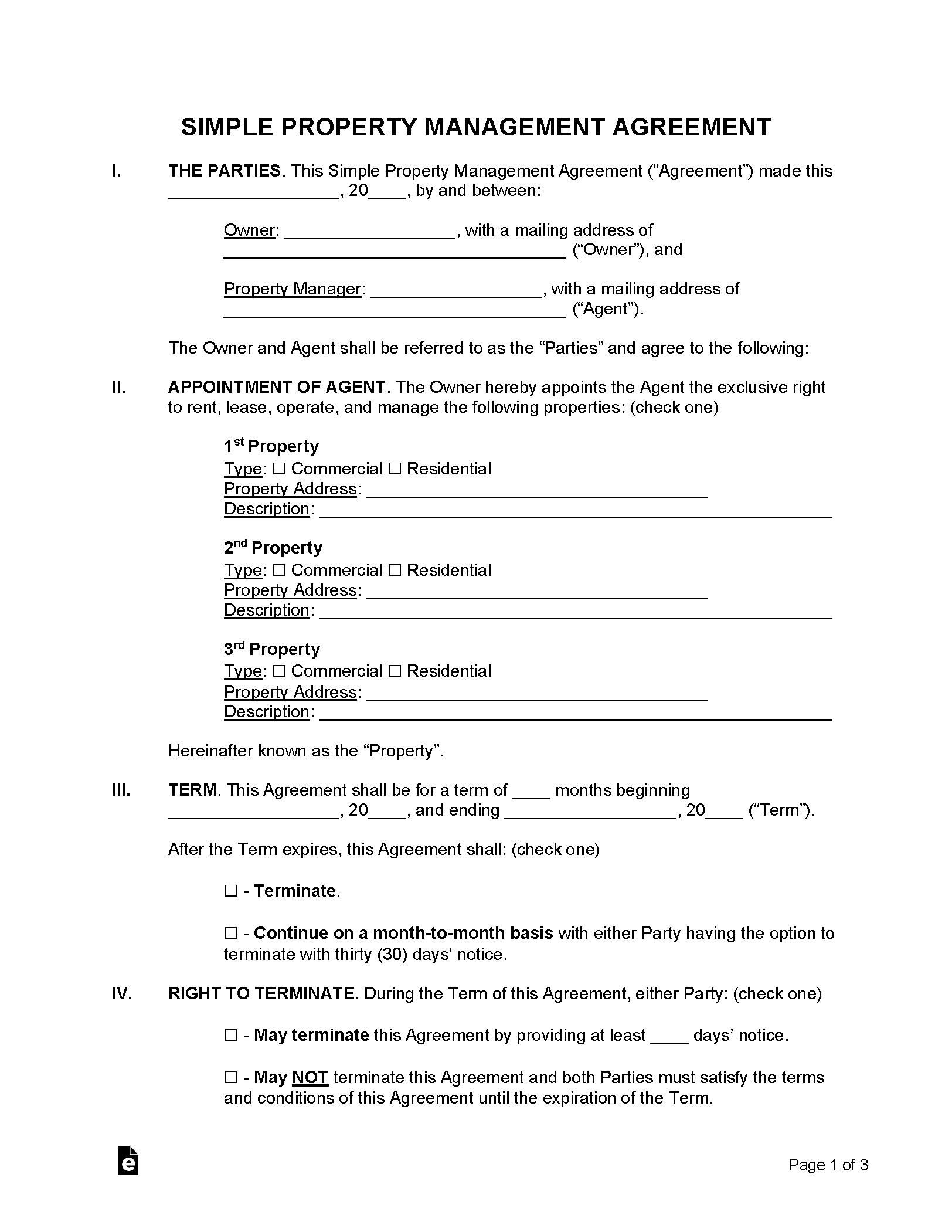Updated October 03, 2023
A property management agreement is between a property owner and a manager that is hired to maintain the property. It is common for the manager to be paid a percentage (%) of the total revenue generated from the property plus fees for maintenance, leasing, and evicting tenants.
By State
- Alabama
- Alaska
- Arizona
- Arkansas
- California
- Colorado
- Connecticut
- Delaware
- Florida
- Georgia
- Hawaii
- Idaho
- Illinois
- Indiana
- Iowa
- Kansas
- Kentucky
- Louisiana
- Maine
- Maryland
- Massachusetts
- Michigan
- Minnesota
- Mississippi
- Missouri
- Montana
- Nebraska
- Nevada
- New Hampshire
- New Jersey
- New Mexico
- New York
- North Carolina
- North Dakota
- Ohio
- Oklahoma
- Oregon
- Pennsylvania
- Rhode Island
- South Carolina
- South Dakota
- Tennessee
- Texas
- Utah
- Vermont
- Virginia
- Washington
- Washington D.C.
- West Virginia
- Wisconsin
- Wyoming
By Type (3)
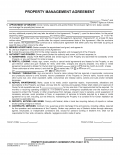 Association of Realtors Version
Association of Realtors Version
Download: PDF
Download: PDF, MS Word, OpenDocument
Download: PDF, MS Word, OpenDocument
Table of Contents |
What is a Property Manager?
A property manager is an individual or company that takes care of all aspects of a property on behalf of the owner. In exchange, the owner pays the manager a portion of the total revenue collected on the property plus any other fees.
Primary Duties (3)
- Tenant relations
- Handling occupancy
- Collecting rent
- Removing the tenant (eviction)
- Property upkeep
- Routine inspections
- Preventative maintenance
- Compliance with fire and building codes
- Marketing the Property
- Advertising available space
- Showing vacant space
- Screening applicants
Requirements
It’s required to either have a real estate agent’s license or a property manager license in all but six (6) States (Idaho, *Kansas, Maine, Maryland, Massachusetts, and Vermont). A license is needed due to the leasing aspect of managing a property.
*Residential only
Popular Certifications (5)
A certification does not give an individual a license to manage property but additional knowledge in day-to-day activities.
- Certified Property Manager (CPM) – Represents the highest of ethical standards to manage properties.
- Certified Apartment Manager (CAM) – Given by the National Apartment Association and recommended for managers with properties of four (4) or more units.
- Certified Manager of Community Associations (CMCA) – For those managing condominium associations, homeowner’s associations, housing cooperatives, resort communities, resort communities, and commercial tenant associations.
- NAR (Realtor) Membership – Handled by your local association and represents knowledge of the market in the local area. This often requires the individual to be a licensed real estate agent in their State.
- Residential Management Professional (RMP) – Designation for those with over 100 units managing per year.
How to Find a Property Manager (4 steps)
- Contact the Most Active Agents
- Meet with Prospective Managers
- Negotiate the Rates
- Write an Agreement
1. Contact the Most Active Agents
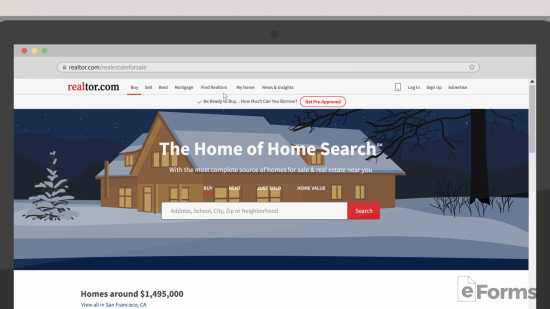 The best property manager is someone that has the most knowledge of what is going on in the local real estate market. Therefore, a real estate agent with active listings for similar properties is the best resource to hire to manage real estate.
The best property manager is someone that has the most knowledge of what is going on in the local real estate market. Therefore, a real estate agent with active listings for similar properties is the best resource to hire to manage real estate.
Find Real Estate Agents Online
- Loopnet.com – For retail and industrial space.
- CityFeet.com – For office space.
- Realtor.com – For residential units.
It’s common for the most active agents to serve their clients with property management. If the top agents in the area do not offer property management services, it’s best to find a company on websites such as Yelp.com or Expertise.com.
2. Meet with Prospective Managers
 After selecting a few managers that would be a good fit for the property it’s best to meet and understand what each offer. Every manager is different while some will outsource a lot of their help. Others have their own internal maintenance staff and usually manage many properties.
After selecting a few managers that would be a good fit for the property it’s best to meet and understand what each offer. Every manager is different while some will outsource a lot of their help. Others have their own internal maintenance staff and usually manage many properties.
The owner will be making a decision to work with the manager on a day-to-day basis so it’s best to be sure about which firm that is decided.
3. Negotiate the Rates
 A property manager is paid as a percentage (%) of the gross revenue of the real estate being managed. In addition, they will offer any additional fees such as lawn care, snow removal, internal accounting, evictions, and any other services.
A property manager is paid as a percentage (%) of the gross revenue of the real estate being managed. In addition, they will offer any additional fees such as lawn care, snow removal, internal accounting, evictions, and any other services.
Average Pay
The average pay for a property manager is between 8% to 12% for most residential properties but depends on the specific type (see below):
Commercial
- Industrial: 8-10%. Space intended for warehousing, distribution, manufacturing, or related use.
- Office: 8-10%. Space designated for professional services or labor.
- Residential (more than 4 units): 8-12% plus fees. Apartment-manager handling the repairs, maintenance, move-out/move-in, collecting rents, and marketing the units.
- Retail: 8-10%. Handling space for shops and restaurants such as malls or neighborhood centers.
- Triple-Net (NNN): 0.5 to 2%. When the tenant pays for all expenses and manages the property themselves.
Residential
- Apartments (1 to 4 units) – 8-12% plus fees. Duplexes and smaller apartment and condominium communities.
- Condominium: 8-12% plus fees. For a unit located in an association.
- Home: 8-12% plus fees for a single-unit residential property.
- Vacation: 10-40% plus fees. This commonly includes year-round maintenance of the property.
Salary & Hourly Pay
4. Write an Agreement
 After negotiating the terms of the agreement, it’s time to write and sign the property management agreement. The average term is commonly one (1) year, with language allowing either party to terminate if terms are not met.
After negotiating the terms of the agreement, it’s time to write and sign the property management agreement. The average term is commonly one (1) year, with language allowing either party to terminate if terms are not met.
Recommended – It’s recommended to have a kick-out clause for either party with thirty (30) days’ notice. For the owner, this offers protection in case the property becomes vacant and feels the manager is not doing their job properly.
How to Terminate a Property Manager (3 steps)
Terminating a property management agreement depends on its terms and conditions. For larger management firms, an agreement may contain penalties or fees for ending the contract earlier than its term.
1. Review Your Agreement
 The owner should read and review their agreement with the property manager in the presence of legal counsel if possible. In most standard agreements, termination is permitted with sufficient notice of thirty (30) days. If not, the owner will have to seek other options to void the agreement.
The owner should read and review their agreement with the property manager in the presence of legal counsel if possible. In most standard agreements, termination is permitted with sufficient notice of thirty (30) days. If not, the owner will have to seek other options to void the agreement.
If the agreement calls for any monies owed to the manager based on annual revenues, the owner will be required to make such prorated payment at the time of terminating the agreement.
2. Notify the Property Manager
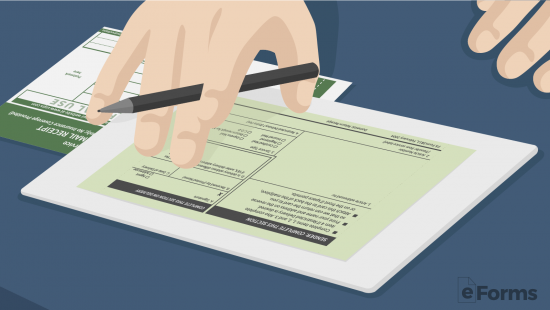 It’s recommended to send a termination notice informing the property manager the agreement between the parties will be void on a specific date. When sending the termination, it’s best to use USPS certified mail with a return receipt to prove they have received notice.
It’s recommended to send a termination notice informing the property manager the agreement between the parties will be void on a specific date. When sending the termination, it’s best to use USPS certified mail with a return receipt to prove they have received notice.
3. Inform the Tenant(s)
 The tenants, by the owner or property manager, must be made aware of the pending change. The tenants should be made aware of the owner’s forwarding address for rent payments, requests, keys, or any other notices. In addition, it’s best to contact the tenant personally, by phone or email, stating the change on the premises.
The tenants, by the owner or property manager, must be made aware of the pending change. The tenants should be made aware of the owner’s forwarding address for rent payments, requests, keys, or any other notices. In addition, it’s best to contact the tenant personally, by phone or email, stating the change on the premises.
Sample
PROPERTY MANAGEMENT AGREEMENT
I. THE PARTIES. This Property Management Agreement (“Agreement”) made this [DATE], by and between:
Owner: [OWNER’S NAME], with a mailing address of [ADDRESS] (“Owner”), and
Property Manager: [PROPERTY MANAGER’S NAME], with a mailing address of [ADDRESS] (“Agent”).
The Owner and Agent shall be referred to as the “Parties” and agree to the following:
II. APPOINTMENT OF AGENT. The Owner hereby appoints the Agent the exclusive right to rent, lease, operate, and manage the following properties: (check one)
1st Property
Type: ☐ Commercial ☐ Residential
Property Address: [ADDRESS]
Description: [DESCRIPTION]
2nd Property
Type: ☐ Commercial ☐ Residential
Property Address: [ADDRESS]
Description: [DESCRIPTION]
3rd Property
Type: ☐ Commercial ☐ Residential
Property Address: [ADDRESS]
Description: [DESCRIPTION]
Hereinafter known as the “Property.”
III. TERM. This Agreement shall be for a term of [#] months beginning [DATE], and ending [DATE] (“Term”).
After the Term expires, this Agreement shall: (check one)
☐ – Terminate.
☐ – Continue on a month-to-month basis with either Party having the option to terminate with thirty (30) days’ notice.
IV. RIGHT TO TERMINATE. During the Term of this Agreement, either Party: (check one)
☐ – May terminate this Agreement by providing at least [#] days’ notice.
☐ – May NOT terminate this Agreement and both Parties must satisfy the terms and conditions of this Agreement until the expiration of the Term.
V. RIGHT TO LEASE. The Owner hereby grants the Agent power to create rental agreements related to the Property: (check all that apply)
☐ – For fixed-term arrangements not exceeding [#] months.
☐ – For month-to-month rental arrangements in accordance with Governing Law.
☐ – For vacation rentals
☐ – Other. [OTHER]
VI. RENTAL AMOUNT. The Owner hereby grants the Agent power to create rental agreements related to the Property for: (check one)
☐ – Market rent.
☐ – A rate no lower than $[AMOUNT] per ☐ month ☐ year ☐ other: [AMOUNT]
☐ – Other. [OTHER]
VII. SECURITY DEPOSITS. The Owner hereby grants the Agent power to collect security deposits from the tenants on the Property. Returning said security deposit shall be the responsibility of the: (check one)
☐ – Agent.
☐ – Owner.
VIII. DISTRIBUTION TO OWNER. The Parties agree that the Agent shall make the following distributions to the Owner: (check one)
☐ – With each payment made by a tenant of the Property on a timely basis.
☐ – [#]% of payments collected to be paid each ☐ week ☐ month with the full balance owed five (5) days before the end of each taxable quarter.
☐ – $[AMOUNT] to be paid each ☐ week ☐ month with the full balance owed five (5) days before the end of each taxable quarter.
☐ – To be paid in full five (5) business days before the end of each taxable quarter.
☐ – Other. [OTHER]
Any unpaid amount from the Agent to the Owner shall be held by the Agent and designated for other fees, expenses, distributions, or other items related to the Property. Any such remaining amounts shall be distributed to the Owner upon the termination of this Agreement.
IX. AGENT’S COMPENSATION. The Owner agrees to pay the Agent the following fees indicated below for the services and provided: (check all that apply)
☐ – Management Fee. [DESCRIBE FEES]
☐ – New Lease. [DESCRIBE FEES]
☐ – Renewal of Lease. [DESCRIBE FEES]
☐ – Eviction. [DESCRIBE FEES]
☐ – Preparing the Property for Leasing. [DESCRIBE FEES]
☐ – Other. [DESCRIBE FEES]
X. NOTICES. Any written notice to the Owner or the Agent required under this Agreement shall be served by sending such notice by Certified Mail with a return receipt. Such notice shall be sent to the respective address in Section I of this Agreement unless written below:
Owner:
Address: [ADDRESS]
Phone: [PHONE]
E-Mail: [E-MAIL]
Agent:
Address: [ADDRESS]
Phone: [PHONE]
E-Mail: [E-MAIL]
XI. GOVERNING LAW. This Agreement shall be governed under the laws in the State where the Property is located (“Governing Law”).
XII. ADDITIONAL TERMS & CONDITIONS. [ADDITIONAL TERMS]
IN WITNESS WHEREOF, the Parties have indicated their acceptance of the terms of this Agreement by their signatures below on the dates indicated.
Owner’s Signature ___________________________ Date: _____________
Print Name: __________________
Agent’s Signature ___________________________ Date: _____________
Print Name: __________________
Management Forms (4)
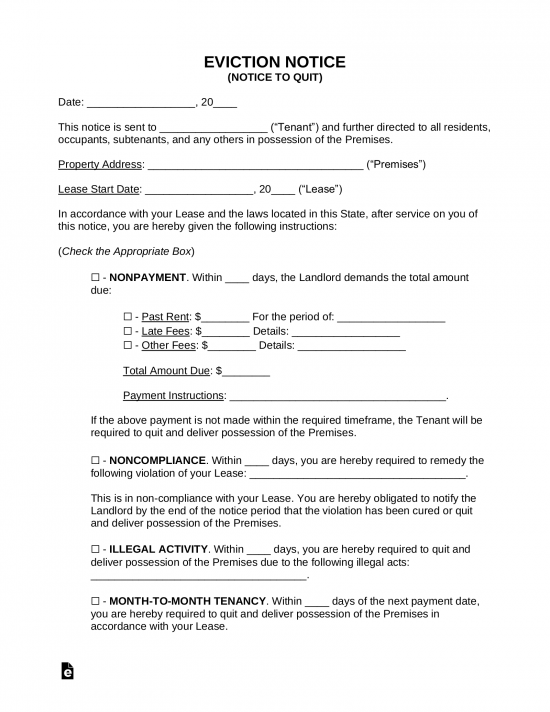 Eviction Notices – Official letter sent to a tenant stating they violate their lease. The notices are written per State law and if the tenant does not abide by its terms, they will be required to vacate the property.
Eviction Notices – Official letter sent to a tenant stating they violate their lease. The notices are written per State law and if the tenant does not abide by its terms, they will be required to vacate the property.
Download: PDF, MS Word, OpenDocument
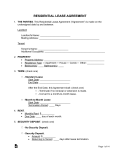 Lease Agreements – Binding contract between a tenant and a landlord or management company to occupy space in exchange for the payment of rent.
Lease Agreements – Binding contract between a tenant and a landlord or management company to occupy space in exchange for the payment of rent.
Download: PDF, MS Word, OpenDocument
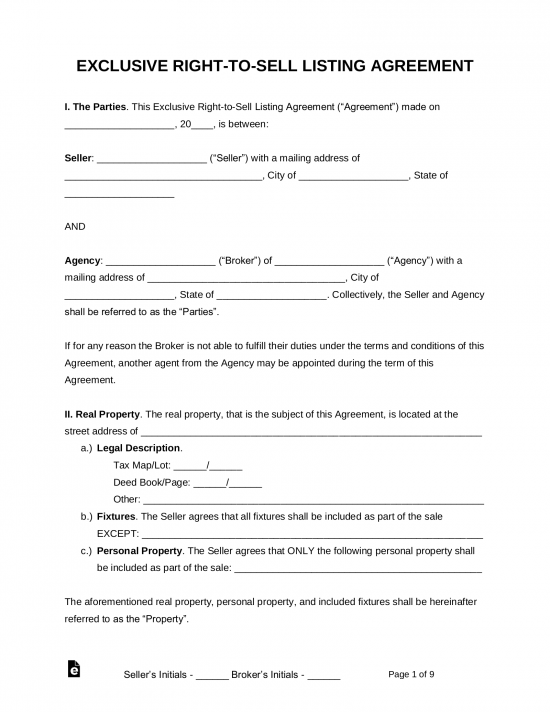 Listing Agreements – Used by an owner of a property seeking to hire a real estate agent for the marketing and selling of their property. The real estate agent is paid a commission based on the sales price at closing.
Listing Agreements – Used by an owner of a property seeking to hire a real estate agent for the marketing and selling of their property. The real estate agent is paid a commission based on the sales price at closing.
Download: PDF, MS Word, OpenDocument
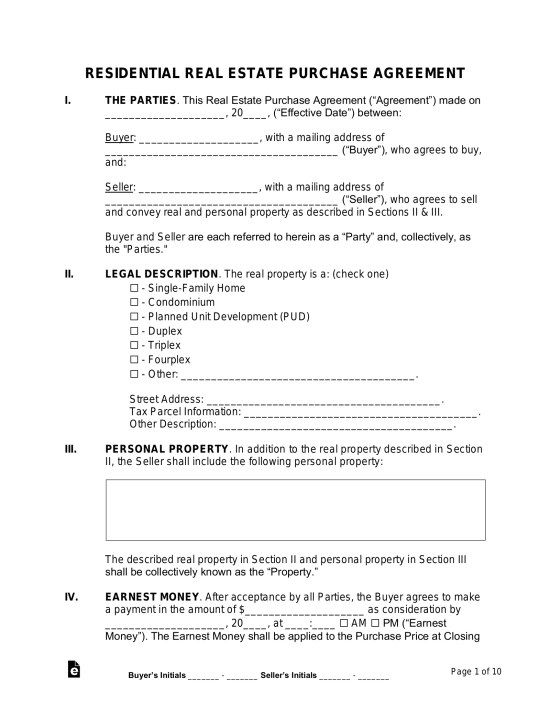 Purchase Agreements – Between a buyer and seller of real estate to outline the terms of a transaction for real property.
Purchase Agreements – Between a buyer and seller of real estate to outline the terms of a transaction for real property.
Download: PDF, MS Word, OpenDocument

